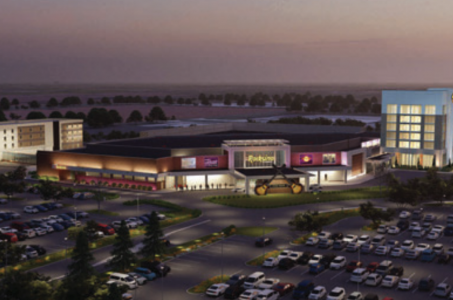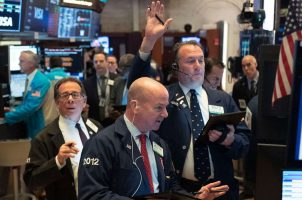Nevada’s Casino-Centric Economy Needs Further Diversity, Leading Economists Warn
Posted on: January 25, 2021, 01:59h.
Last updated on: January 25, 2021, 03:16h.
Nevada’s economy must expand beyond its gaming industry reliance and add other types of industries, two economists said. Their prescription comes in response to a recent call by Gov. Steve Sisolak (D) to diversify the industries in the state, given the coronavirus economic downturn.

Currently, 30 percent of the jobs in Clark County relate to the gaming, leisure, and hospitality sectors, according to Stephen Miller, director of UNLV’s Center for Business and Economic Research.
We need to rely less on gather-together sectors, where people interact face-to-face, such as restaurants and bars, hotels and casinos, and so on, to address the pandemic recession,” Miller told Casino.org.
Shortly after the coronavirus outbreak last March, Nevada’s unemployment rate jumped to over 30 percent in April. Gradually, the unemployment rate partially recovered.
As of November, it was still over 10 percent. Unemployment levels are closely aligned to the drop in gaming revenue in locations like casino-dependent Clark County.
Even with the gradual improvement over 2020, in November gross gaming revenue (GGR) on the Las Vegas Strip totaled $349.8 million. That’s a 32.5 percent reduction from November 2019, according to Nevada Gaming Control Board reports.
Since November, Nevada’s gaming floors, bars, and restaurants also were forced by Sisolak to reduce occupancy to 25 percent of capacity. Several hotel-casinos additionally are shuttering hotels during the middle of the week due to lower reservations.
Tesla Provides Some Diversity
But not all of Nevada has this kind of reliance. Miller gives the example of the Tesla Gigafactory, located in Storey County’s Tahoe Reno Industrial Center. It is close to Reno, which is in nearby Washoe County.
The plant manufactures lithium-ion batteries and electric vehicle components. It employed about 7,000 workers as of two years ago.
The region “is doing better through the COVID-19 recession because they have diversified their economy,” Miller said.
With this Tesla plant and similar changes, Washoe County’s reliance on jobs in leisure and hospitality went from 30 to 15 percent, Miller said.
Economic Diversification in Clark County
Clark County has not been as lucky. A few years back, the county was hopeful about having a more diverse economy when Faraday Future was planning to build a $1.3 billion electrical vehicle plant in North Las Vegas.
But the company scrapped its plans in 2017. With the abandoned plans, the county lost the 4,000 or more expected new jobs.
Looking back, Nevada’s effort at diversification through the Governor’s Office on Economic Development has been taking place in the state since the 2007-09 recession, Miller points out.
John Restrepo, principal of Las Vegas-based RCG Economics, agrees in theory that the state’s economy should become less reliant on traditional sectors like gaming.
“The current Nevada economy has become economically vulnerable over time, as the global economy and technology has changed. It doesn’t handle economic disruptions very well because it largely depends on this discretionary spending from outsiders — individuals and companies — as well as … large numbers of low-skill, low-wage workers,” Restrepo told Casino.org.
He wants to see more investment in higher education and workforce training.
There are more immediate steps to provide a stronger economy in Nevada, too, including the widespread use of the COVID 19 vaccine and robust infrastructure programs, he adds.
“Economic development is a realistic goal, but will take a lot of time, talent, treasure, and political will by the private and public sectors, as I often say,” Restrepo added. “Nevada really has no choice if it wants to have a more resilient, sustainable, and modern economy.”
Related News Articles
Golden Entertainment Could Glitter with Regional Catalysts, Strat Renovation
Indiana Businessman Who Lost License Part of Hard Rock’s Terre Haute Venture
Most Popular
LOST VEGAS: ‘Tony The Ant’ Spilotro’s Circus Circus Gift Shop
Las Vegas Overstated F1 Race’s Vegas Impact — Report
Mega Millions Reportedly Mulling Substantial Ticket Price Increase
Las Vegas Strip Stabbing Near The Strat Leaves One Man Dead
Most Commented
-
End of the Line for Las Vegas Monorail
— April 5, 2024 — 90 Comments -
Mega Millions Reportedly Mulling Substantial Ticket Price Increase
— April 16, 2024 — 8 Comments -
Long Island Casino Opponents Love New York Licensing Delays
— March 27, 2024 — 5 Comments
















No comments yet